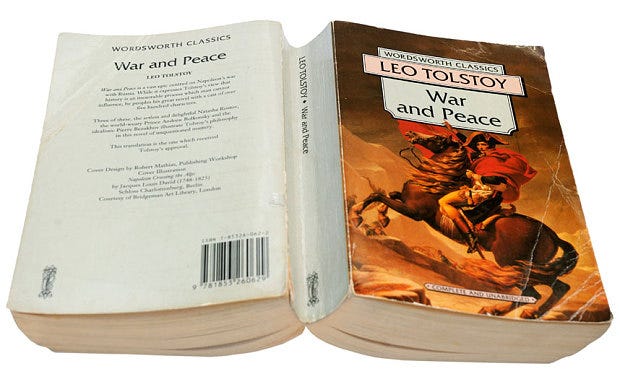A eulogy for the peacetime leader
#managing_others Ben Horowitz popularized wartime and peacetime leadership eight years ago. In today's climate, I argue wartime leadership is the dominant modality.
In 2011, Ben Horowitz wrote an article that I believe popularized the idea of the wartime versus peacetime software leader, which he titled "Peacetime CEO/Wartime CEO." Ben brilliantly defines the characteristics of these characters neatly. One of the more important conclusions is that peacetime leaders do not resemble wartime leaders, and the likelihood one is both are slim. Bill Taylor, a co-founder of Fast Company, quickly wrote a rebuttal for HBR titled "Are You a Peacetime CEO or a Wartime CEO?" Bill builds on Ben's article and challenges Ben's implicit tone that it is harder to be a peacetime leader.
It's been nine years since this discussion, and the world has changed. The democratization of computing power, the advancements in programming frameworks, and the proliferation of the Internet have dramatically changed the business landscape in the years since. For the most part, these changes have created two dualities: empires with prolonged periods of perceived peace and prosperity and everyone else fiercely competing to protect what they have against hoards of upstarts and the shifting demands of the customers they serve. I don't think Bill's point is relevant anymore, and I question if Ben's distinction between peacetime and wartime leadership matters. RIP peacetime leader, the wartime leader, is the only leadership model to follow now.
Both authors speak wistfully of peacetime, but if we're honest with ourselves; peace in business is fleeting these days. Even if you are a member of one of the FAANG empires, you may still be at war. The sheer size of the companies, far more significant than they were nine years ago, are frequent battlegrounds for civil war internally between executives and their organizations. Respites appear fleetingly after reorganizations, but then it begins again.
I argue that wartime leadership is an essential skill that the modern leader needs to master. In Ben's article, he astutely observes that most business books only document peacetime. If you think about it, it makes perfect sense. The rules of war change depending on the circumstances of the moment. A modern military war would undoubtedly borrow sparingly from the principles of the Spartans. So it is that tactics in wartime leadership must be fleeting.
Perhaps the best approach for ongoing education is to recognize when you, your colleagues, or your network are at war. In those moments, it pays to understand the mechanics of the battle they are fighting profoundly and to learn from struggles won and lost. War in all of its analogous forms may be the new norm, so seizing the opportunity to learn from each episode is a gift and perhaps something not to be dreaded.
While the prospect of war as the new norm feels dreary, those moments hard-fought and won are those personal stories we all remember most. Invariably, they follow the path of the hero's journey, and each conflict is an opportunity for all of us to be the hero of our own story.
If you happen to chance upon a period of peace, I share with you the Latin adage popularized by John Wick 3, "Si vis pacem, para bellum."
If you want peace, prepare for war.


